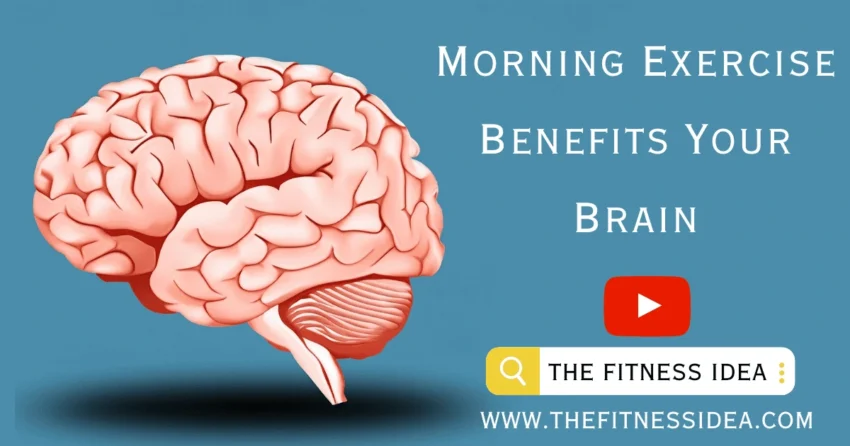Did you know that morning exercise benefits your brain? In fact, studies have shown that people who exercise in the morning tend to have better mood, focus, and memory than those who exercise later in the day.
There are a number of reasons why morning exercise is so good for your brain. First, it helps to increase blood flow to the brain. This provides the brain with the oxygen and nutrients it needs to function at its best. Second, morning exercise helps to release endorphins, which have mood-boosting effects. Third, morning exercise can help to improve sleep quality, which can also lead to improvements in cognitive function.
In this article, we will discuss 6 of the proven ways that morning exercise can boost your cognitive function.

1. Improved Mood
One of the most well-known benefits of morning exercise is its ability to improve mood. Studies have shown that people who exercise in the morning tend to have lower levels of stress, anxiety, and depression than those who exercise later in the day.
There are a number of reasons why morning exercise can improve mood. First, it helps to increase blood flow to the brain. This provides the brain with the oxygen and nutrients it needs to function at its best. Second, morning exercise helps to release endorphins, which have mood-boosting effects. Endorphins are hormones that are produced by the body in response to exercise. They have a number of mood-boosting effects, including reducing feelings of pain, stress, and anxiety.
2. Increased Focus
Morning exercise can also help to improve focus and concentration. Studies have shown that people who exercise in the morning tend to have better attention spans and are less likely to be distracted.
There are a number of reasons why morning exercise can improve focus. First, it helps to increase the supply of oxygen to the brain. This provides the brain with the fuel it needs to function at its best. Second, morning exercise helps to improve blood flow to the prefrontal cortex, which is the part of the brain responsible for attention and concentration.
3. Better Memory
Morning exercise can also help to improve memory. Studies have shown that people who exercise in the morning tend to have better short-term and long-term memory than those who exercise later in the day.
There are a number of reasons why morning exercise can improve memory. First, it helps to increase blood flow to the hippocampus, which is the part of the brain responsible for memory. Second, morning exercise helps to improve the production of new brain cells, which can also help to improve memory.
4. Reduced Stress
Morning exercise can also help to reduce stress. Studies have shown that people who exercise in the morning tend to have lower levels of cortisol, which is a stress hormone.
There are a number of reasons why morning exercise can reduce stress. First, it helps to increase the production of endorphins, which have mood-boosting and stress-reducing effects. Second, morning exercise helps to improve sleep quality, which can also help to reduce stress levels.
5. Better Sleep
Morning exercise can also help to improve sleep quality. Studies have shown that people who exercise in the morning tend to fall asleep faster, sleep more soundly, and wake up feeling more refreshed than those who exercise later in the day.
There are a number of reasons why morning exercise can improve sleep quality. First, it helps to increase the body’s temperature, which then drops in the hours leading up to bedtime. This natural temperature drop helps to promote sleep. Second, morning exercise helps to tire the body, which can make it easier to fall asleep.
6. Increased Energy Levels
Morning exercise can also help to increase energy levels. Studies have shown that people who exercise in the morning tend to have more energy throughout the day than those who exercise later in the day.
There are a number of reasons why morning exercise can increase energy levels. First, it helps to increase the body’s metabolism, which in turn helps to burn more calories. Second, morning exercise helps to improve blood flow to the muscles, which can help to increase energy levels.
Conclusion
As you can see, there are a number of proven ways that morning exercise can boost your cognitive function. If you are looking for a way to improve your mood, focus, memory, stress levels, sleep quality, and energy levels, then morning exercise is a great option.
